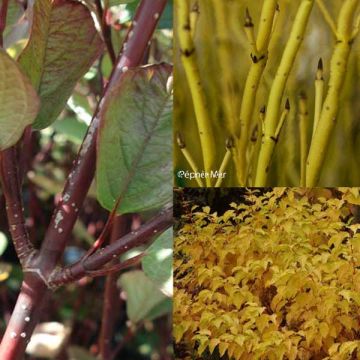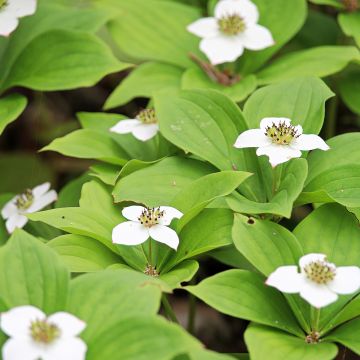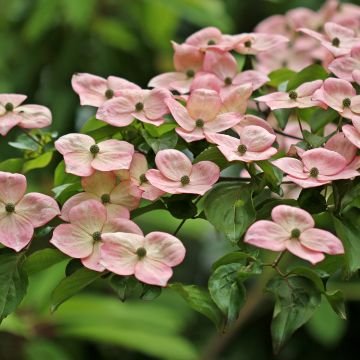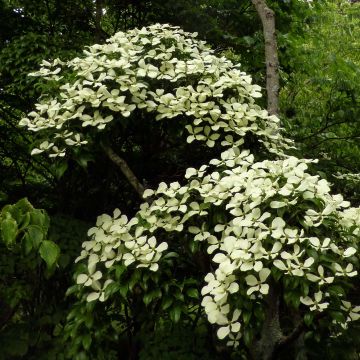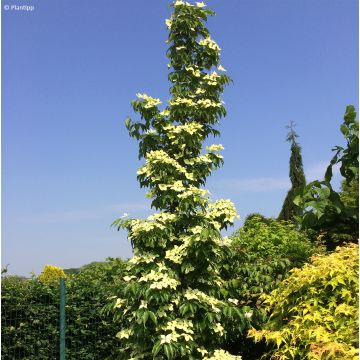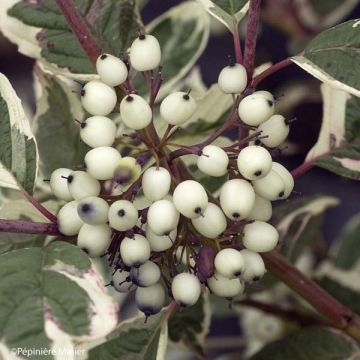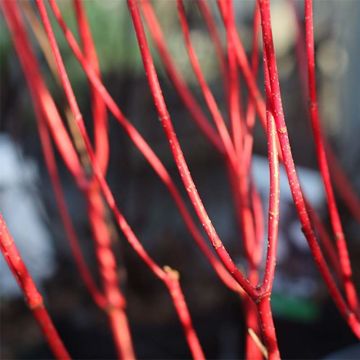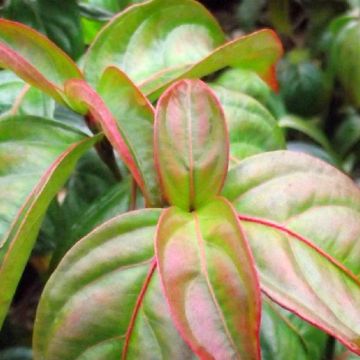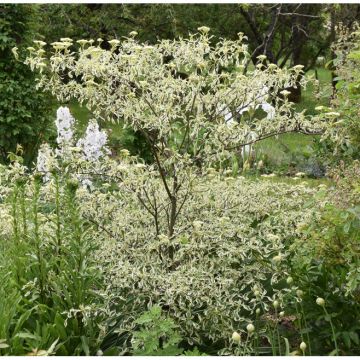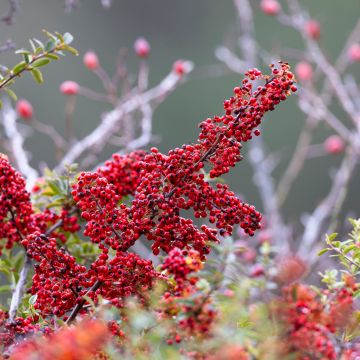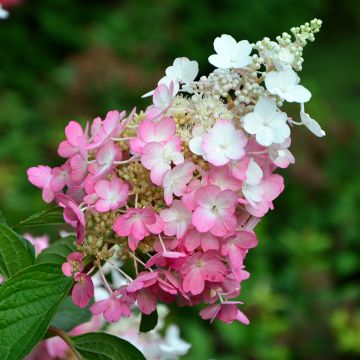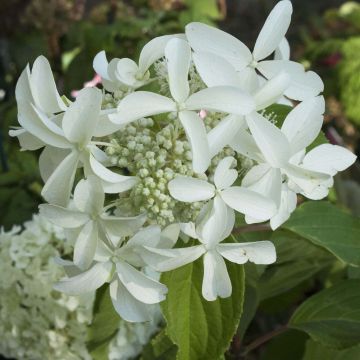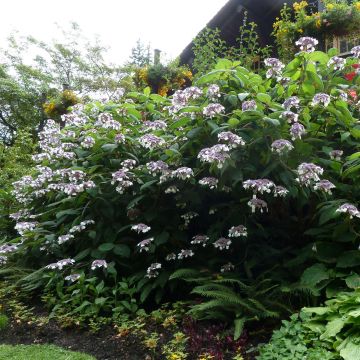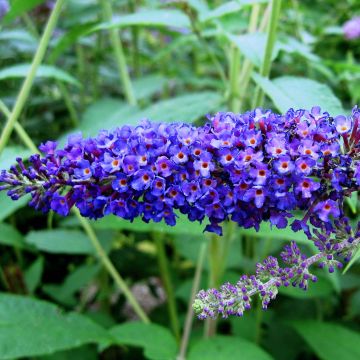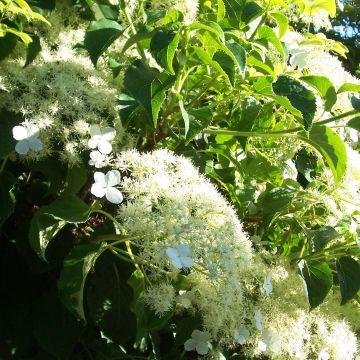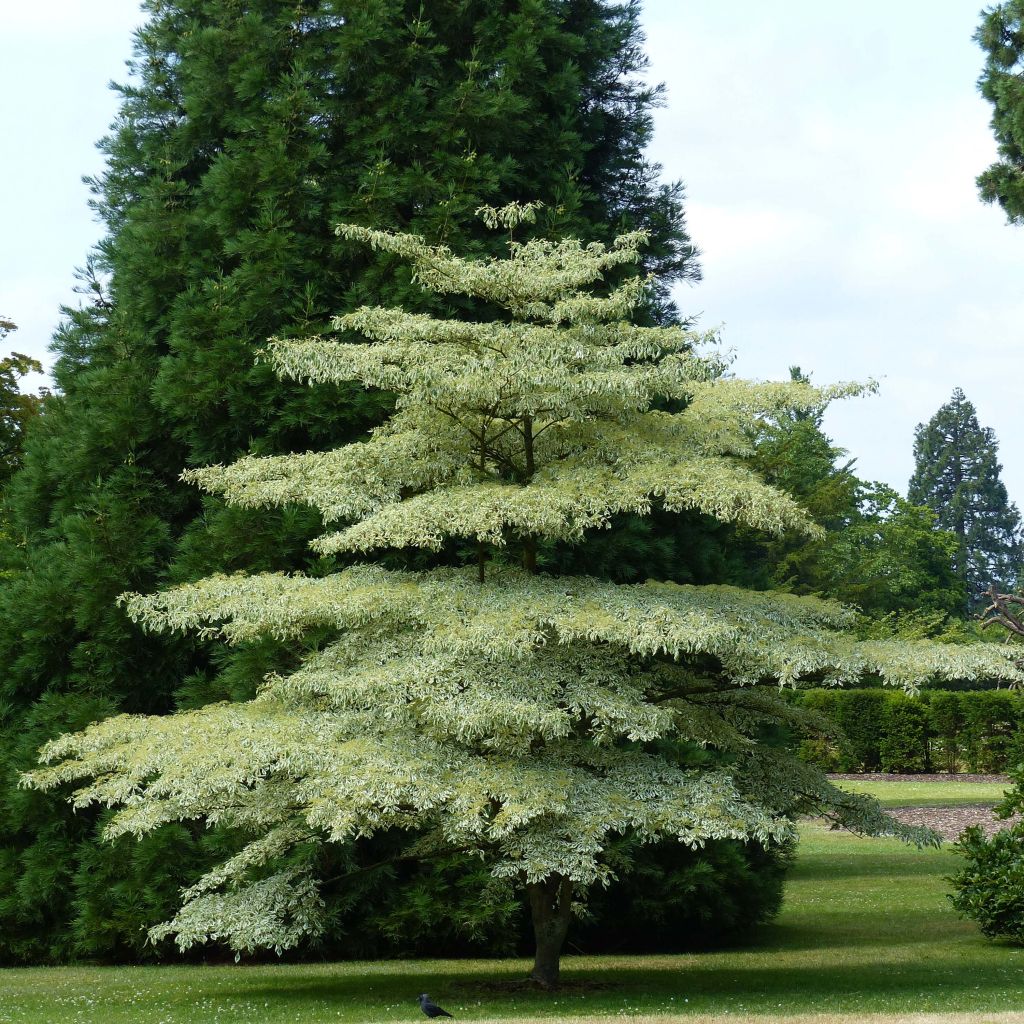

Cornus controversa Variegata - Giant Dogwood
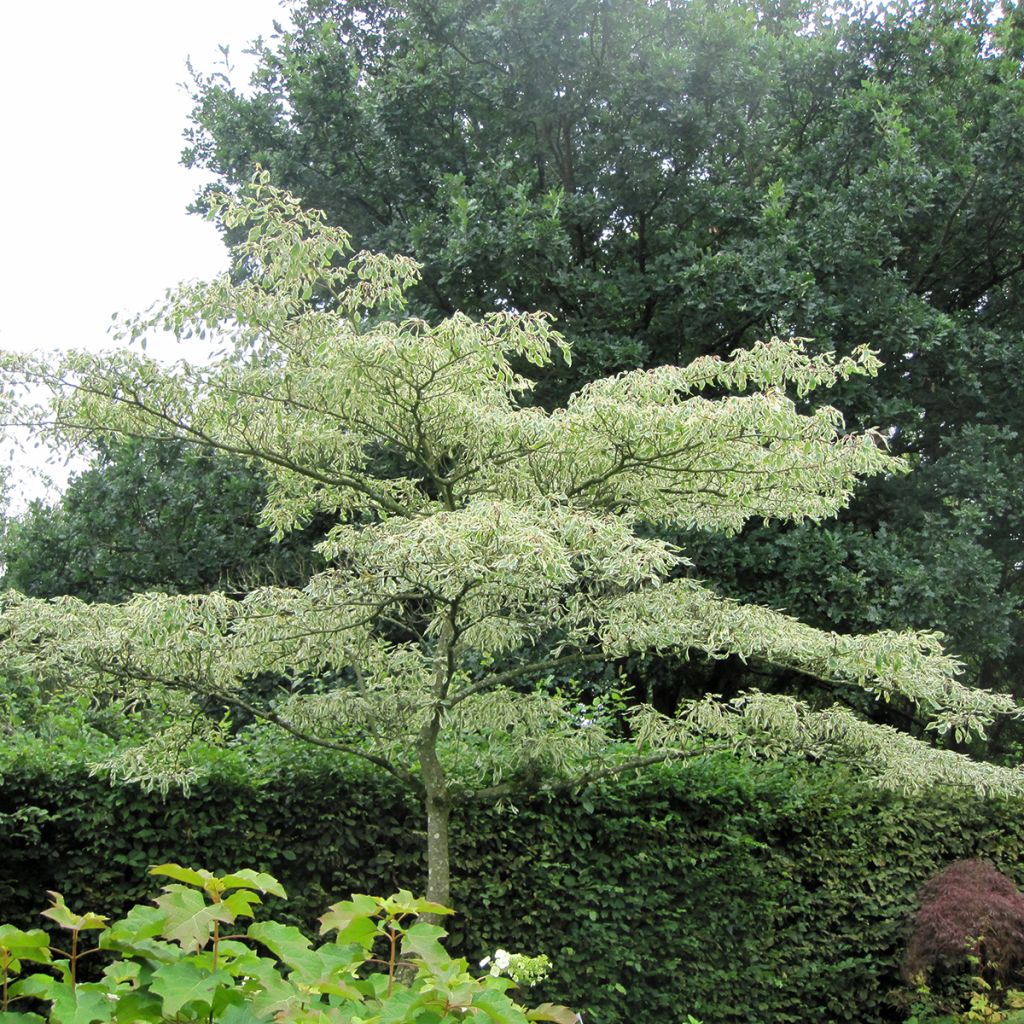

Cornus controversa Variegata - Giant Dogwood
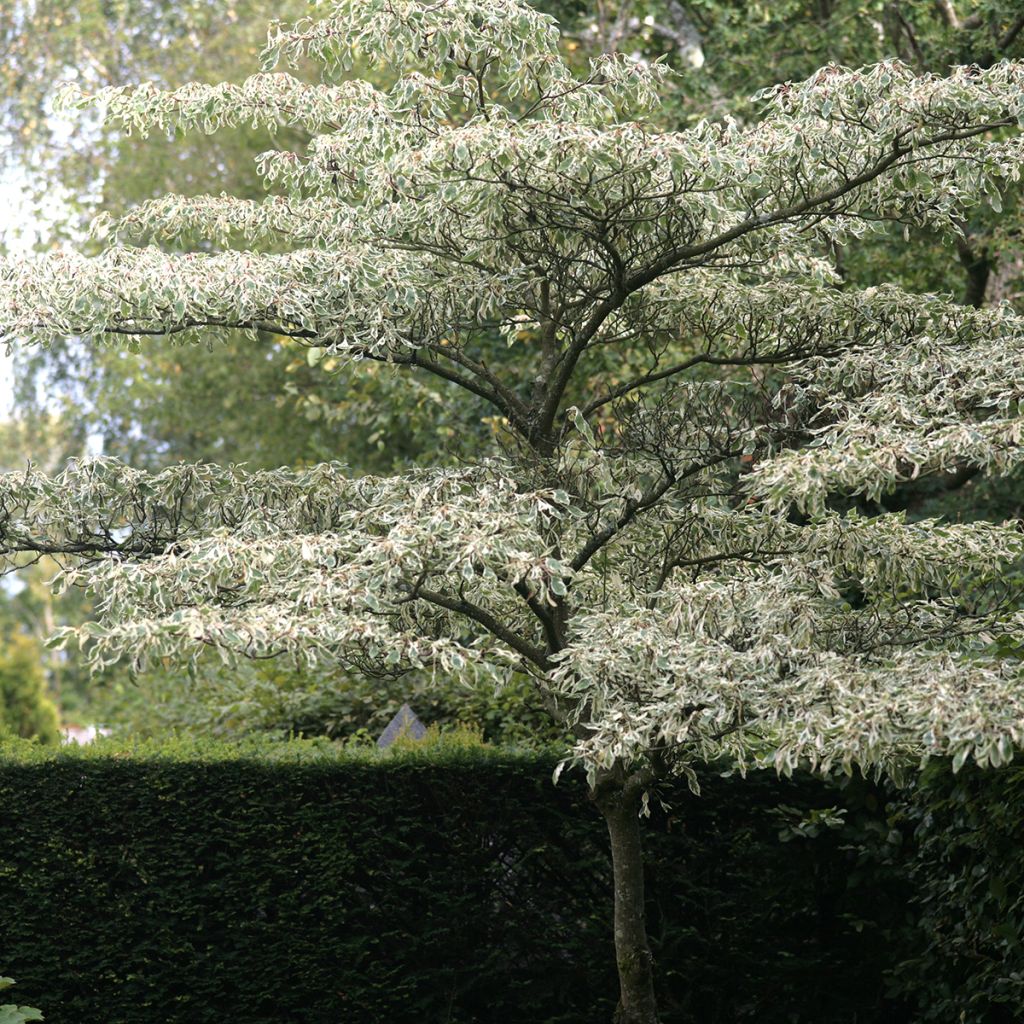

Cornus controversa Variegata - Giant Dogwood
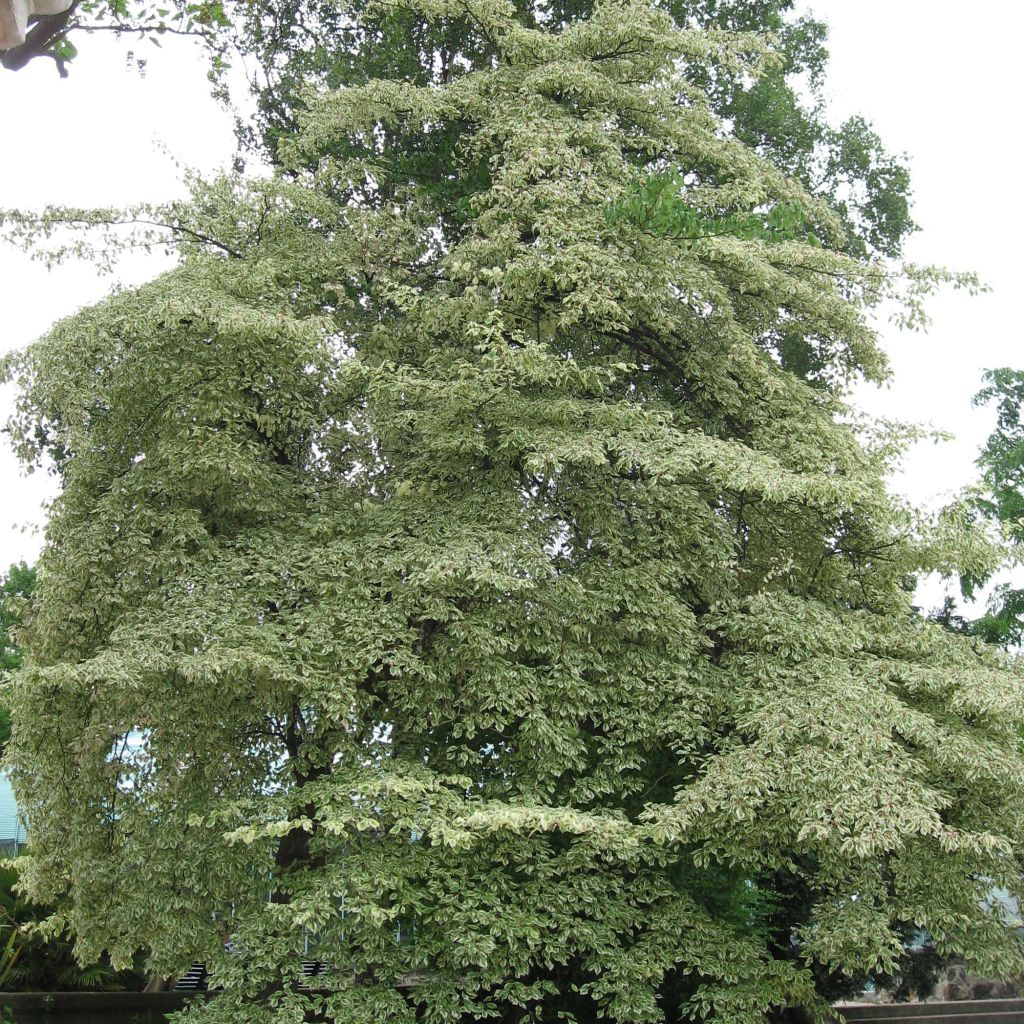

Cornus controversa Variegata - Giant Dogwood


Cornus controversa Variegata - Giant Dogwood
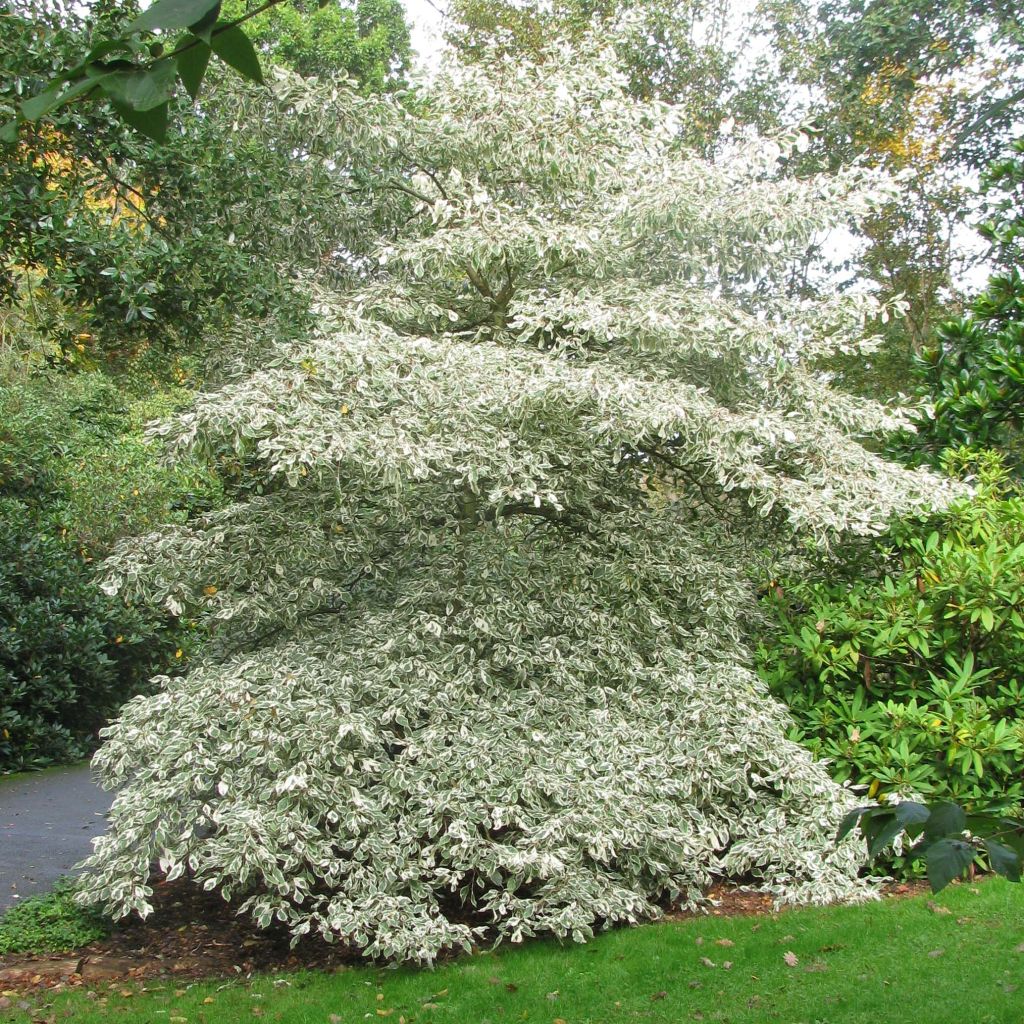

Cornus controversa Variegata - Giant Dogwood
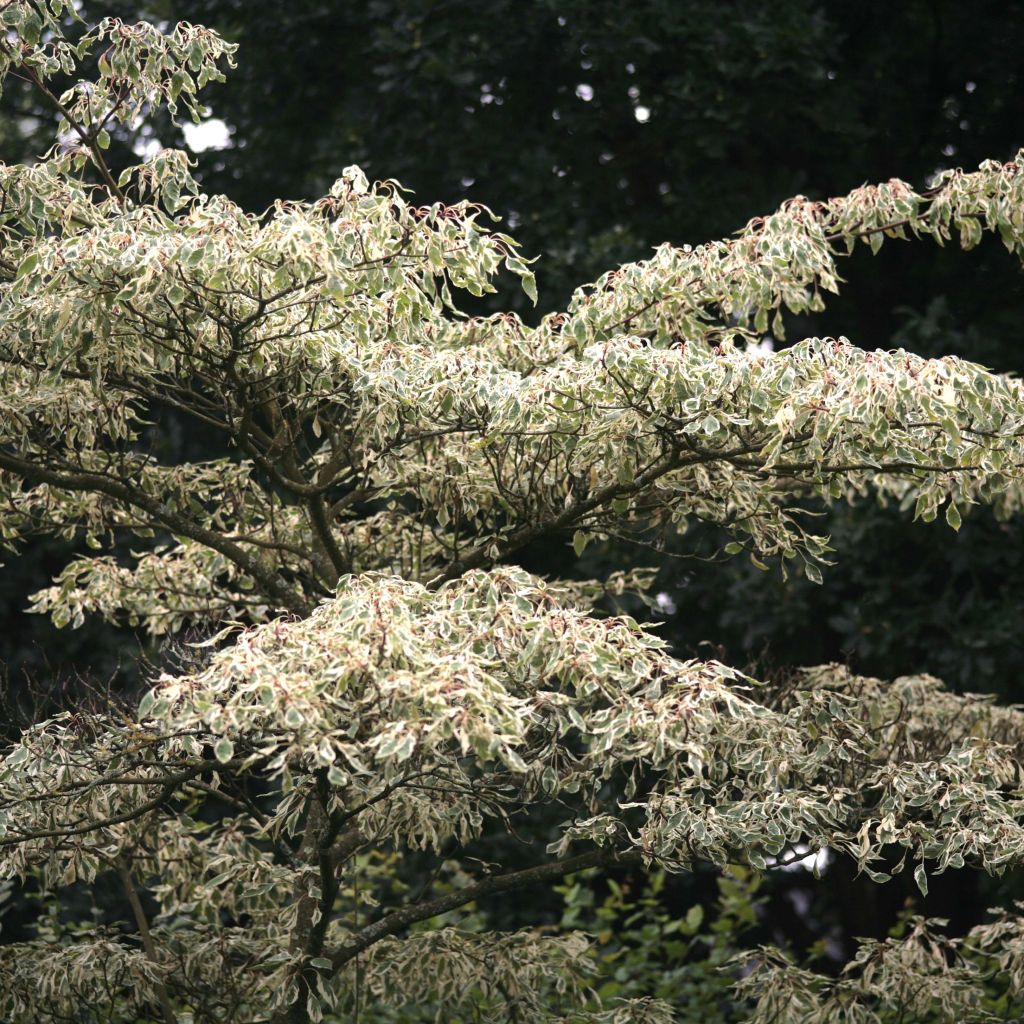

Cornus controversa Variegata - Giant Dogwood
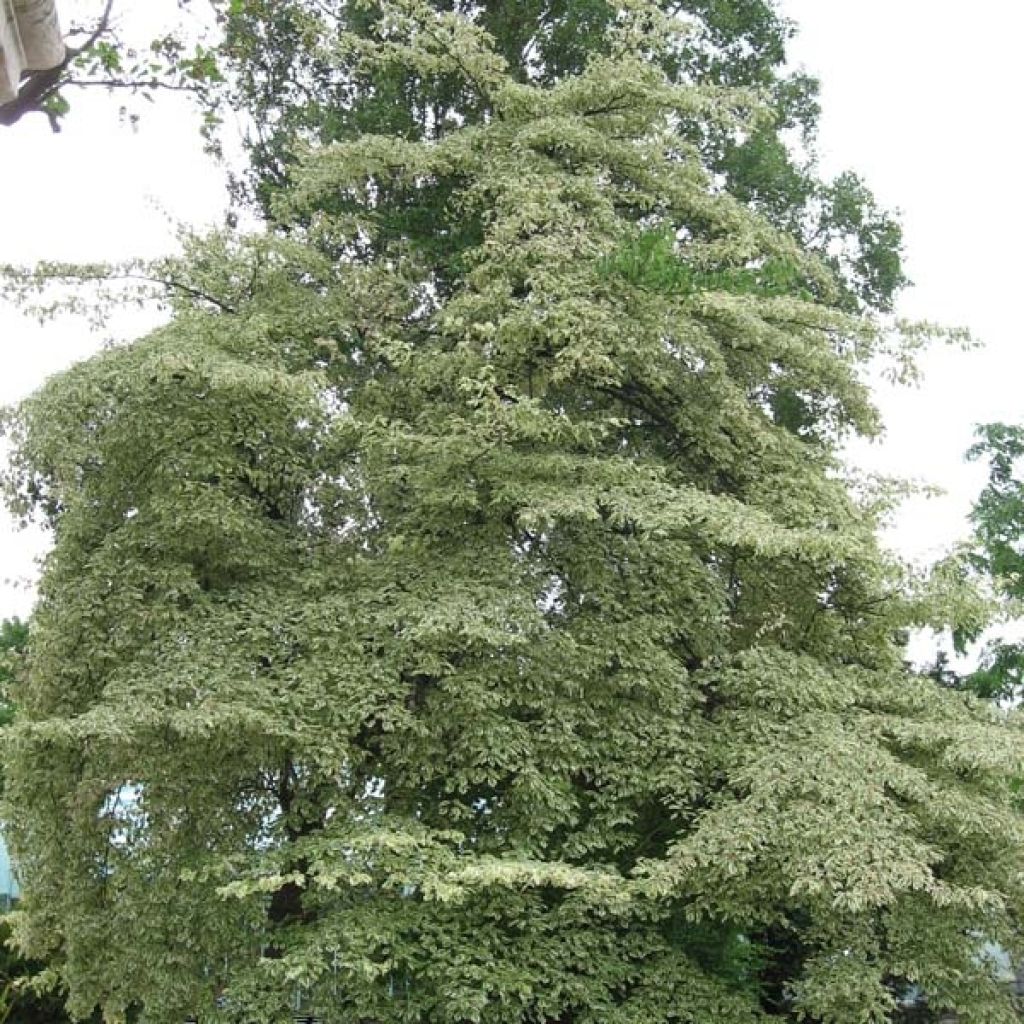

Cornus controversa Variegata - Giant Dogwood
View more pictures
Hide images
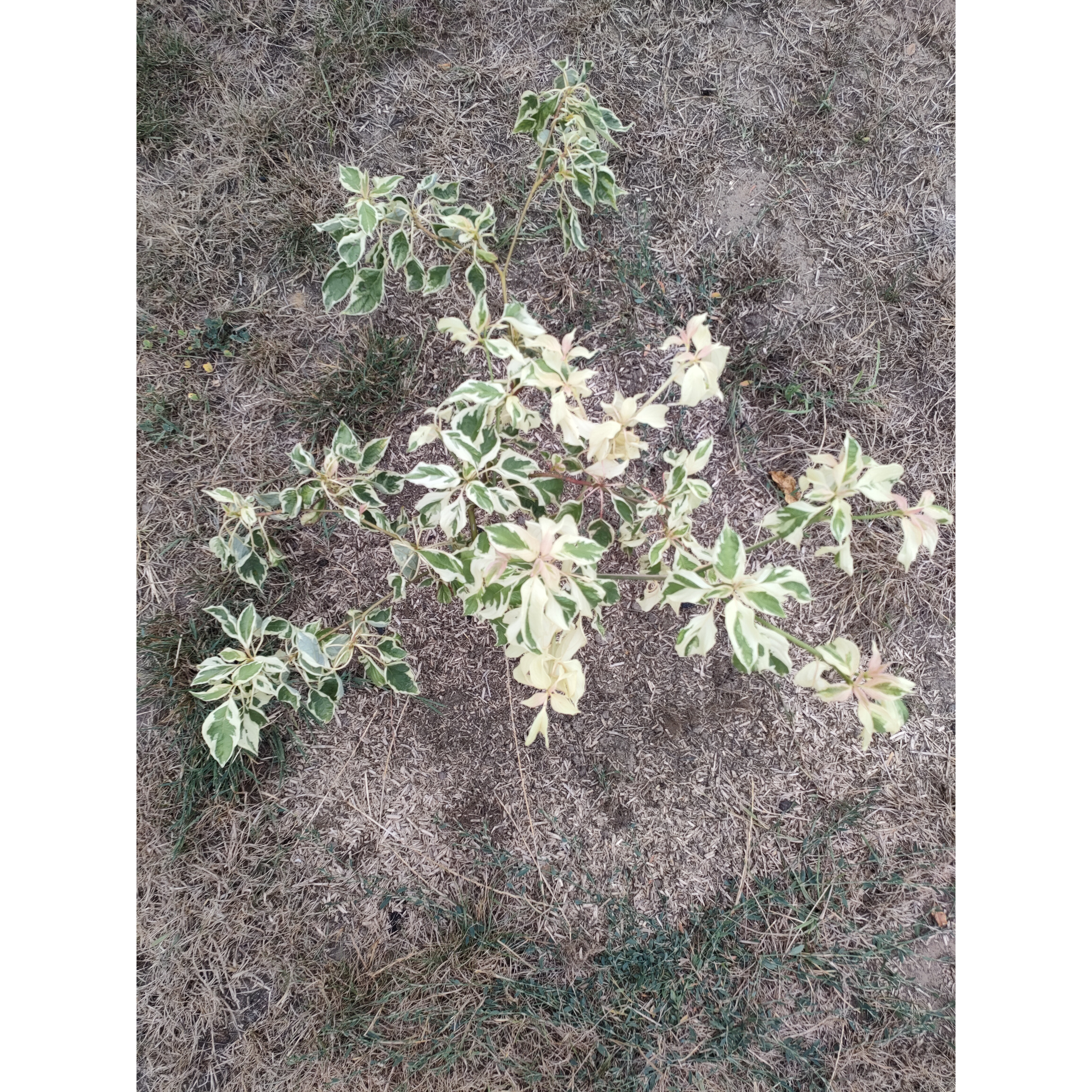
Berriot E.

From above, it endured the summer thanks to the planting advice.
Berriot E. • 02 FR
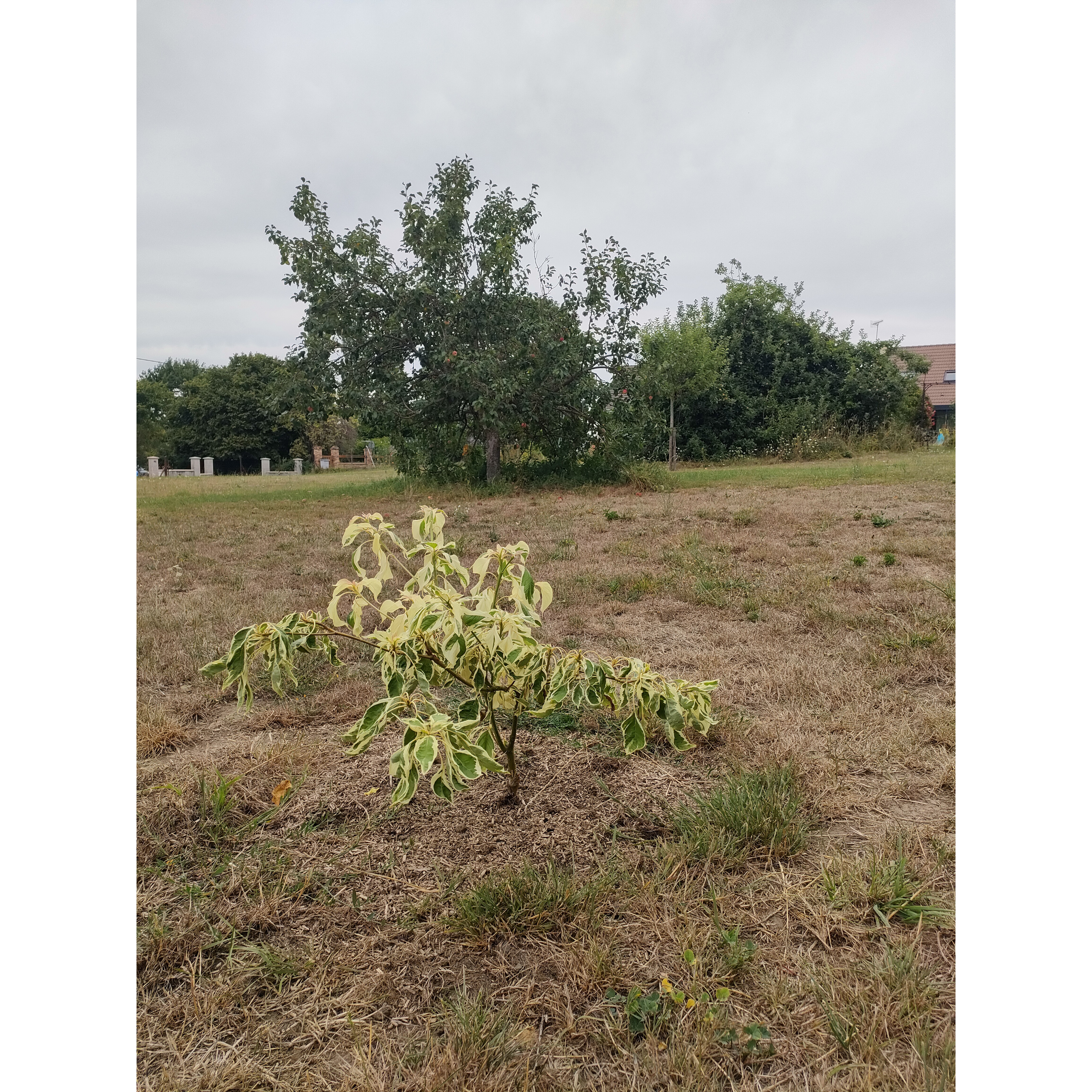
Berriot E.

Cornus planted in spring 2022
Berriot E. • 02 FR
Cornus controversa Variegata - Giant Dogwood
Cornus controversa Variegata
Giant Dogwood, Wedding Cake Tree
Arrived damaged, faulty packaging.
Sylvie, 23/10/2025
Special offer!
Receive a €20 voucher for any order over €90 (excluding delivery costs, credit notes, and plastic-free options)!
1- Add your favorite plants to your cart.
2- Once you have reached €90, confirm your order (you can even choose the delivery date!).
3- As soon as your order is shipped, you will receive an email containing your voucher code, valid for 3 months (90 days).
Your voucher is unique and can only be used once, for any order with a minimum value of €20, excluding delivery costs.
Can be combined with other current offers, non-divisible and non-refundable.
Home or relay delivery (depending on size and destination)
Schedule delivery date,
and select date in basket
This plant carries a 24 months recovery warranty
More information
We guarantee the quality of our plants for a full growing cycle, and will replace at our expense any plant that fails to recover under normal climatic and planting conditions.

Would this plant suit my garden?
Set up your Plantfit profile →
Description
Cornus controversa 'Variegata', also known as variegated Pagoda dogwood, is a deciduous small tree that looks like it came straight out of a dream. Its tiered branch silhouette is adorned with glossy foliage, widely variegated with cream, which is covered in summer by snowy, fragrant inflorescences, followed by blue-black, shiny fruits. Its autumn foliage takes on shades of red to violet before revealing, in winter, the perfect architecture of its branches. Over time, and with elegance, it imposes its presence and deserves to be reserved a place in the garden like a work of art, in moist soil without too much limestone.
Cornus controversa 'Variegata' is a variegated cultivar derived from a small tree native, as if it were obvious considering its extremely refined appearance, from China, Korea, and Japan. It simultaneously develops a vertical leading shoot and tiered, horizontal branches, slowly reaching a height of 7 to 8m (23 - 26ft) with a spread of 6m (19ft 8in). Its young reddish branches are covered with deep green foliage edged with cream and white, highly veined and glossy, with the underside being lighter, grayish to bluish. It is the only dogwood, along with Cornus alternifolia, to have alternate leaves instead of opposite ones. They are elliptical, ovate, with a pointed tip, traversed by about 8 parallel veins, and measure 10cm (3.9in) in length. The foliage turns dark red in October and remains vibrant on the tree before falling. While it is magnificent at the end of the season, its flowering from May to June in flattened white cymes is highly ornamental. The large fragrant clusters they form, measuring 10 to 15cm (3.9 - 5.9in) in diameter, come to illuminate the tree while highlighting its unique habit. The flowering is followed by the formation of blue-black berries, 1cm (0.4in) in diameter.
This variegated Pagoda dogwood deserves to be planted as a standalone tree in a short grass meadow, and its modest size is well suited for small spaces. It can, of course, be used in Japanese-inspired scenes where it will blend beautifully with the small Acer palmatum 'Dissectum', Rhododendron yakushimanum, or Pieris japonica 'Forest Flame'. The perennials that accompany it will, like it, prefer moist, slightly acidic soils. In full sun, its base can be covered with Lithodora diffusa, which offers intense blue flowers, and in partial shade, Heucheras and Astilbes will perfectly fulfill this function. In a more minimalist style, it can be used for its graphic appeal, in combination with very simple materials such as concrete or metal, as well as with grasses like Calamagrostis x acutiflora, Helictotrichon sempervirens, Carex comans 'Bronze'. At its base, a fern with an upright habit like Matteucia struthiopteris will create a beautiful contrast with the horizontality of our small tree.
Report an error about the product description
Cornus controversa Variegata - Giant Dogwood in pictures
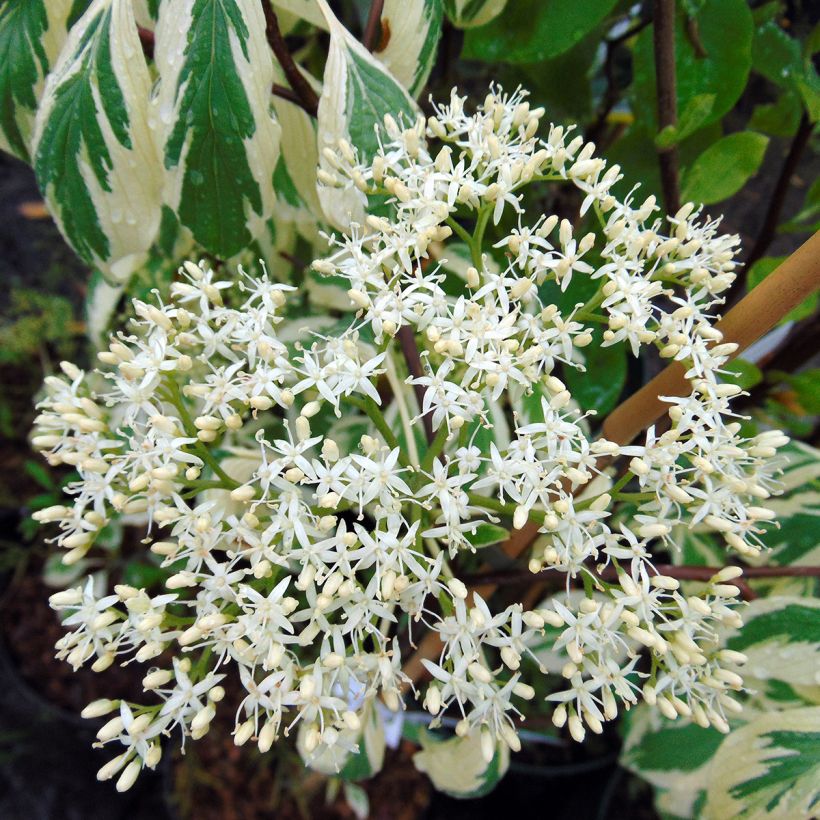

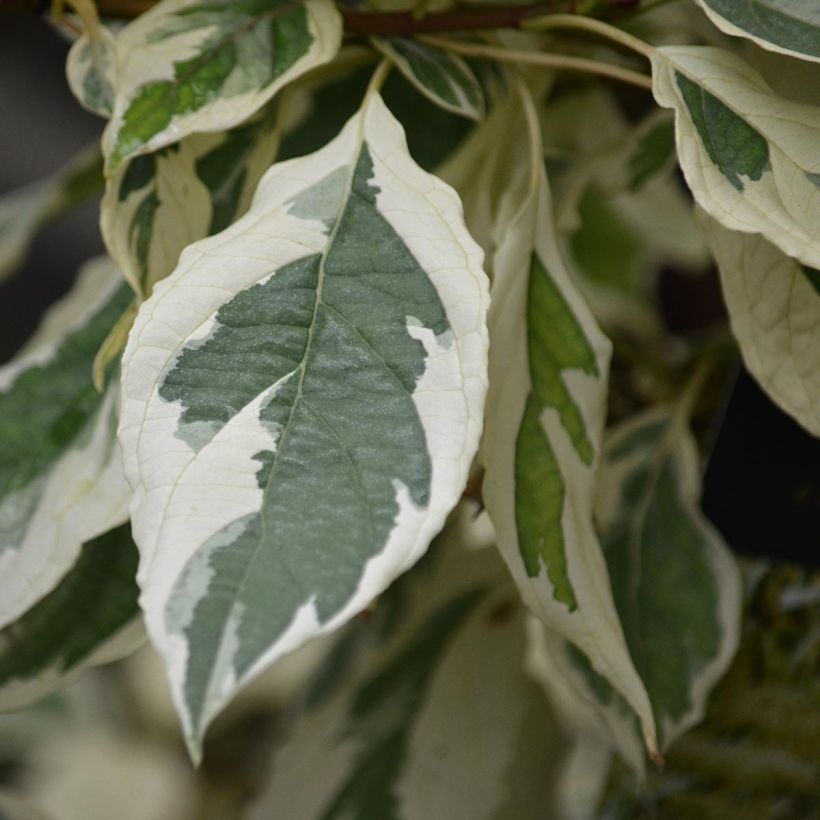

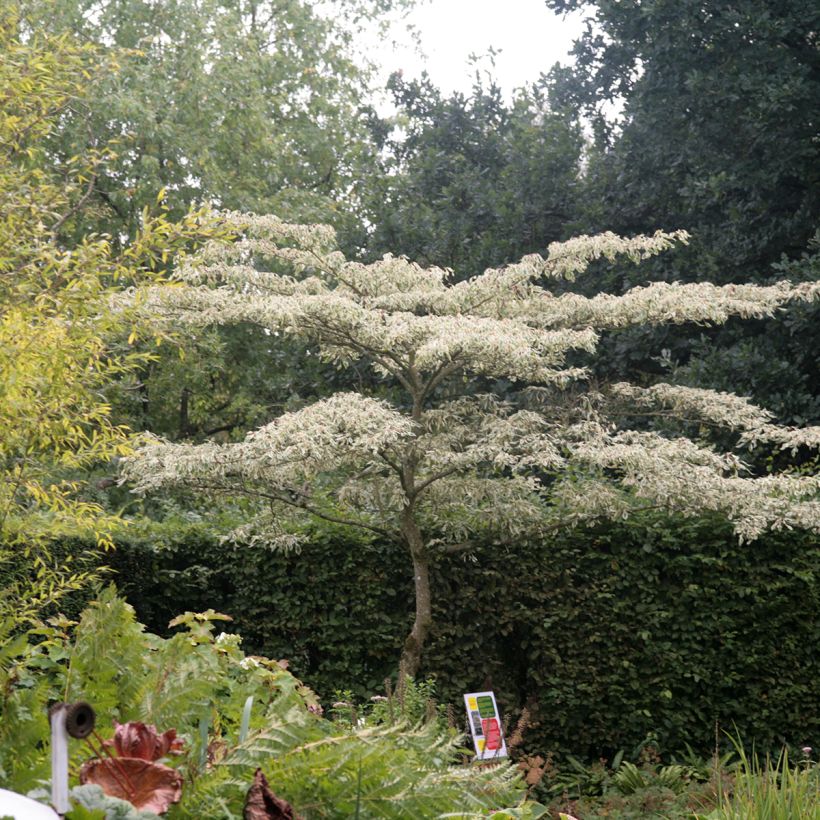

Plant habit
Flowering
Foliage
Botanical data
Cornus
controversa
Variegata
Cornaceae
Giant Dogwood, Wedding Cake Tree
Cultivar or hybrid
Other Cornus
View all →Planting and care
Easy to grow, this Cornus controversa 'Variegata' requires little maintenance, pruning is unnecessary as its magnificent habit is completely spontaneous. It prefers a fresh, humus-bearing soil, not too chalky to slightly acidic. Plant it in a sunny or semi-shaded position. It is very hardy, resistant to -20°C (-4 °F). In chalky soils, acidity should be provided. Prepare a large planting hole (1m x 1m x 0.50m). 40% of the removed original soil will be replaced with an addition of 30% turf, 20% leaf compost, and 10% river sand. If the soil is already neutral or acidic, an addition of compost and manure will suffice for planting. In maintenance, regular fertilization will be applied, as well as turf or pine bark to maintain acidity in alkaline soils. The faded flowers can of course be removed.
Planting period
Intended location
Care
-
, onOrder confirmed
Reply from on Promesse de fleurs
Similar products
Haven't found what you were looking for?
Hardiness is the lowest winter temperature a plant can endure without suffering serious damage or even dying. However, hardiness is affected by location (a sheltered area, such as a patio), protection (winter cover) and soil type (hardiness is improved by well-drained soil).

Photo Sharing Terms & Conditions
In order to encourage gardeners to interact and share their experiences, Promesse de fleurs offers various media enabling content to be uploaded onto its Site - in particular via the ‘Photo sharing’ module.
The User agrees to refrain from:
- Posting any content that is illegal, prejudicial, insulting, racist, inciteful to hatred, revisionist, contrary to public decency, that infringes on privacy or on the privacy rights of third parties, in particular the publicity rights of persons and goods, intellectual property rights, or the right to privacy.
- Submitting content on behalf of a third party;
- Impersonate the identity of a third party and/or publish any personal information about a third party;
In general, the User undertakes to refrain from any unethical behaviour.
All Content (in particular text, comments, files, images, photos, videos, creative works, etc.), which may be subject to property or intellectual property rights, image or other private rights, shall remain the property of the User, subject to the limited rights granted by the terms of the licence granted by Promesse de fleurs as stated below. Users are at liberty to publish or not to publish such Content on the Site, notably via the ‘Photo Sharing’ facility, and accept that this Content shall be made public and freely accessible, notably on the Internet.
Users further acknowledge, undertake to have ,and guarantee that they hold all necessary rights and permissions to publish such material on the Site, in particular with regard to the legislation in force pertaining to any privacy, property, intellectual property, image, or contractual rights, or rights of any other nature. By publishing such Content on the Site, Users acknowledge accepting full liability as publishers of the Content within the meaning of the law, and grant Promesse de fleurs, free of charge, an inclusive, worldwide licence for the said Content for the entire duration of its publication, including all reproduction, representation, up/downloading, displaying, performing, transmission, and storage rights.
Users also grant permission for their name to be linked to the Content and accept that this link may not always be made available.
By engaging in posting material, Users consent to their Content becoming automatically accessible on the Internet, in particular on other sites and/or blogs and/or web pages of the Promesse de fleurs site, including in particular social pages and the Promesse de fleurs catalogue.
Users may secure the removal of entrusted content free of charge by issuing a simple request via our contact form.
The flowering period indicated on our website applies to countries and regions located in USDA zone 8 (France, the United Kingdom, Ireland, the Netherlands, etc.)
It will vary according to where you live:
- In zones 9 to 10 (Italy, Spain, Greece, etc.), flowering will occur about 2 to 4 weeks earlier.
- In zones 6 to 7 (Germany, Poland, Slovenia, and lower mountainous regions), flowering will be delayed by 2 to 3 weeks.
- In zone 5 (Central Europe, Scandinavia), blooming will be delayed by 3 to 5 weeks.
In temperate climates, pruning of spring-flowering shrubs (forsythia, spireas, etc.) should be done just after flowering.
Pruning of summer-flowering shrubs (Indian Lilac, Perovskia, etc.) can be done in winter or spring.
In cold regions as well as with frost-sensitive plants, avoid pruning too early when severe frosts may still occur.
The planting period indicated on our website applies to countries and regions located in USDA zone 8 (France, United Kingdom, Ireland, Netherlands).
It will vary according to where you live:
- In Mediterranean zones (Marseille, Madrid, Milan, etc.), autumn and winter are the best planting periods.
- In continental zones (Strasbourg, Munich, Vienna, etc.), delay planting by 2 to 3 weeks in spring and bring it forward by 2 to 4 weeks in autumn.
- In mountainous regions (the Alps, Pyrenees, Carpathians, etc.), it is best to plant in late spring (May-June) or late summer (August-September).
The harvesting period indicated on our website applies to countries and regions in USDA zone 8 (France, England, Ireland, the Netherlands).
In colder areas (Scandinavia, Poland, Austria...) fruit and vegetable harvests are likely to be delayed by 3-4 weeks.
In warmer areas (Italy, Spain, Greece, etc.), harvesting will probably take place earlier, depending on weather conditions.
The sowing periods indicated on our website apply to countries and regions within USDA Zone 8 (France, UK, Ireland, Netherlands).
In colder areas (Scandinavia, Poland, Austria...), delay any outdoor sowing by 3-4 weeks, or sow under glass.
In warmer climes (Italy, Spain, Greece, etc.), bring outdoor sowing forward by a few weeks.






























